Banking from your phone?
Download our app
Welcome Back
You can access your accounts here.

Banking from your phone?
Scan the code to download our app.

featured
2024-03-01
Financial Health
published
Your Guide to Building Credit During Tax Season

-
Tax season may not be the most exciting part of the year, but the potential for a tax refund can make it all worth it. When deciding how to use your tax refund, prioritize options that improve your financial standing. One effective choice is building credit with a secured credit card. In 2023, the Internal Revenue Service (IRS) disclosed that the average tax refund for the 2022 tax year was $2,753, which is a significant amount for improving your financial health and credit score. Keep reading to learn why you should use your tax refund for a secured credit card.
When are Taxes Due?
Tax season starts on January 29, as the IRS officially starts accepting and processing tax returns. The deadline for filing is always April 15, unless it falls on a weekend, in which case the deadline extends to the following Monday. Submitting tax returns after this deadline may result in late penalty fees and interest charges. To gain extra time, a tax extension allows an additional six-month window beyond the initial tax day, meaning the extension deadline is October 15.
Reasons to Use a Tax Refund for a Secured Credit Card
A solid credit score unlocks valuable financial opportunities, streamlining processes like job applications, apartment rentals, and loan approvals. Opting to invest your tax refund in a secured credit card is a wise strategy for building your credit score. Here's why:
Apply for a Credit Builder Account
1. Create Credit History
Your credit history reflects the duration of your active accounts, an important factor in your credit score. Starting the process of establishing your credit history may seem like cracking a code, particularly since having credit is a prerequisite for building credit. This challenge is familiar to those with weak credit history, making it difficult to get a credit card and build a credit score. However, everyone has to start somewhere. Secured credit cards stand out as a valuable solution in such scenarios, offering a straightforward path to jumpstart your credit history, even if that history is limited or non-existent.
2. Expand Credit Mix
Lenders and creditors look for a diverse range of credit types in your history, showcasing your ability to manage a variety of credit accounts. This mix encompasses credit cards, student loans, auto loans, and mortgages. By utilizing your tax refund to kickstart a secured credit card, you're not merely introducing a new credit line; you're broadening your credit profile. This not only boosts your credit score but also demonstrates your ability to manage multiple credit types responsibly, making you a more attractive borrower to lenders.
3. Increase Credit Limit and Decrease Credit Utilization Ratio
Increasing the funds in your secured credit card raises your available credit limit, potentially lowering your credit utilization ratio and positively influencing your credit score. This ratio, calculated as (Credit Card Balance / Credit Limit) x 100, plays a significant role in determining your credit score.
For example, if you have a $600 balance on a secured card with a $1,000 limit, your credit utilization is 60%, surpassing the recommended 30%. However, increasing your secured card’s limit to $2,000 by adding $1,000 from your tax refund will reduce your credit utilization to 30% ($600 / $2,000). Managing your credit limit effectively in a secured credit card can be a strategic move to improve your credit score, as long as you avoid substantial increases in spending.
4. Extra Financial Protection
Putting your tax refund towards a secured credit card is a smart step in credit building, complete with an automatic safety net. Secured credit cards operate with a cash deposit as collateral for the card issuer. If you happen to miss a payment, no need for concern—the issuer can dip into your cash deposit to cover the cost, offering an additional layer of protection and peace of mind. It's like having a reassuring safety net for your finances!
5. Establish Positive Payment History
The most impactful factor affecting your credit score is your payment history, making up 35% of the total. Consistent and timely payments on your secured credit card actively contributes to establishing a positive payment history. Allocating your tax refund towards making payments is a highly effective strategy to ensure your payment history is on the right track, fostering a positive credit trajectory. If you need help figuring out a game-plan for making payments, we recommend using a calculator for paying off your credit card.
6. Refundable Deposit
As touched upon earlier, with a secured credit card, an initial cash deposit is required, and it's returned when you close the account (given you've consistently paid your balance on time and in full each month). Closing a credit card might have a negative impact on your credit history, but having the ability to retrieve your deposit offers flexibility, especially if you find yourself in need of funds.
Credit Building at Armed Forces Bank
Rather than just enjoying your tax refund, why not make those purchases with a secured credit card? Armed Forces Bank’s Credit Builder Secured Visa® Credit Card provides a seamless solution. You have the flexibility to set your own credit limit, ranging from $300 to $3,000, allowing you to deposit your entire tax refund or just a portion. With automatic reporting to major credit bureaus (Equifax, Experian, and TransUnion), this card helps you build a credit score, ensuring well-deserved recognition for your positive financial habits.
And what's even better? As you use this card to strengthen your credit history, you're setting the stage for potential upgrades to unsecured credit cards. Imagine the added perks, bonuses, and financial opportunities that could be in store. Seize control of your financial future—submit an Armed Forces Bank secured credit card application today! There is no application fee.
Member FDIC
Subject to credit approval. Transaction and Penalty fees apply. Credit Builder Savings account required. $5.00 quarterly fee charged to the Credit Builder Savings account if not enrolled in eStatements. Improved credit score is not guaranteed. Credit score is determined by credit reporting agencies based on multiple factors, but satisfactory performance on a credit card product can improve your credit score. Default on a credit card, including missed or late payments can damage your credit score. Once added, funds cannot be withdrawn from the Credit Builder Savings account and the Credit Builder credit card without closing the savings account and the credit card.